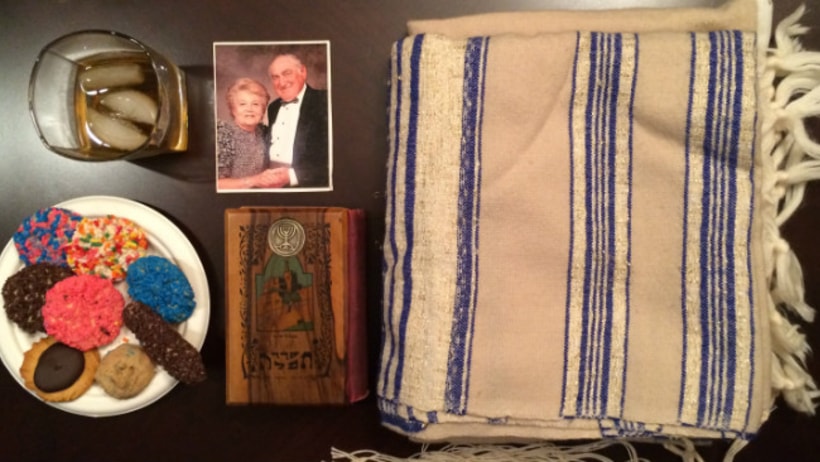One of my favorite shul memories from my childhood is going with my Zayde to services on Shabbat morning. He had a regular ritual that during the Haftorah he and his friends would disappear from services into the small kitchen for a l’chaim. I remember this was called the “key club” because someone from the group had to provide the keys to let them into the otherwise locked space. The men would enjoy a beverage and a chat during Haftorah, and return to sing their hearts out during Musaf.

Likewise, there was a group of women that had a special ritual too. Toward the end of the service I remember the women exiting to the social hall to set out kiddush.
And the children? We too had our special time, and of course it was the best ritual of all. During the Torah service, I was whisked away on a parade through the sanctuary to a special kids-only space where I could play, pray, and learn without having to be quiet.
What was great about the Shabbat mornings of my memory, and those just like it in synagogues all over, was the emphasis on the idea that Jewish ritual and practice are open to all. Everyone finds a way to connect.
This week we read from parshat Vayelech, which speaks of the difficulty leaders have in transferring over their power. We read of the final days of Moshe and the gift of life he had in living 120 years. The Israelites approach the land promised to them and witness the transfer of “power” to Joshua. Finally, Moshe writes the words of the Torah and passes down the commandment to the Kohanim to read the Torah. Moshe’s final moments with the Israelites are near, and he prepares for this by coming up with a transfer of legacy, tradition, and history.
The Torah teaches us in chapter 31 that as Moshe is going through this transition, he makes the following request to gather the people. “Gather the people, men, women, children and the strangers in your communities – that they may hear and so learn to revere the Lord your God and to observe faithfully every word of this Teaching. Their children too, who have not had the experience, shall hear and learn to revere the Lord your God.” Everyone is invited to learn, and everyone is considered to be an inheritor of our tradition. This also means that we are individually responsible for engaging and enjoying this rich tradition in a personally meaningful way.
Most notably, Moshe mentions the children “who have not had the experience.” It is commanded in the Torah that we bring children into our communities so that they can learn. Imagine Mt. Sinai as the world’s biggest Tot Shabbat. Noisy as it must have been, that idea is what Jewish learning is about.
Whether you come for the l’chaim, the kiddush, the d’var Torah, or the communal davening, the Torah’s lesson this week is that one need only show up to partake. Judaism is for us all, men, women, and children, and the job we share is to gather together to teach, to learn, and to listen so that our beautiful traditions live on.
-Rabbi Eve Posen
Source: Something For Everyone – Parshat Vayelech 5776 – Rabbi Eve Posen



